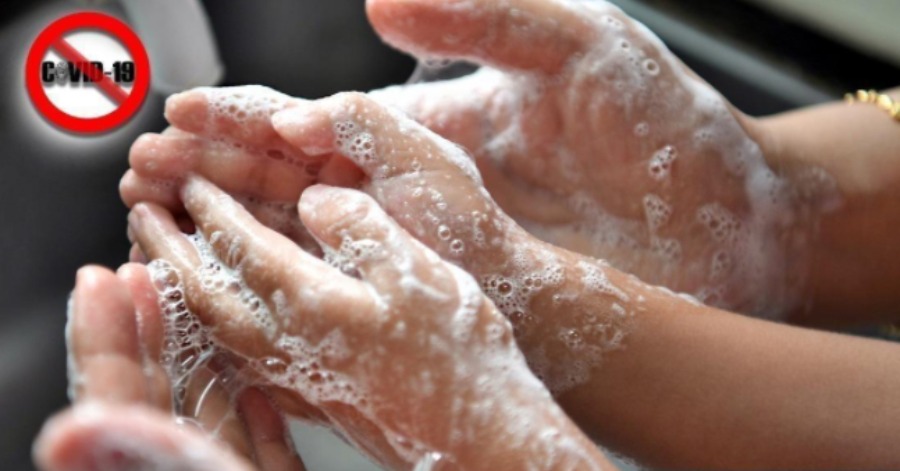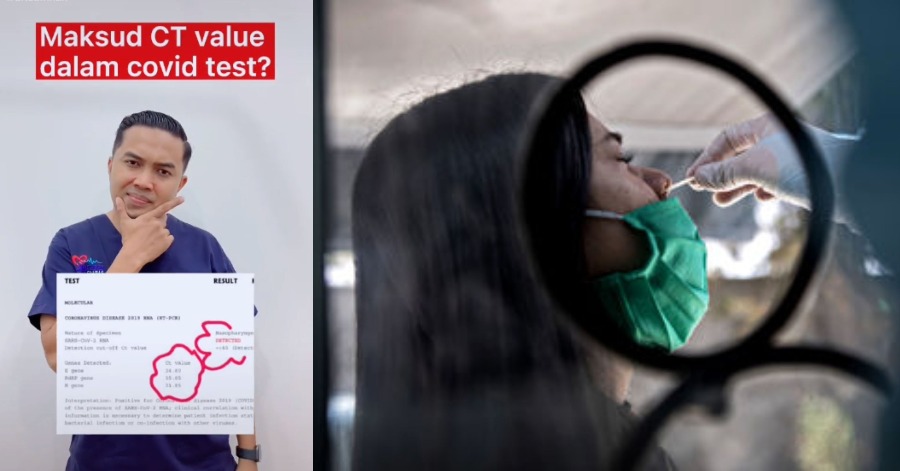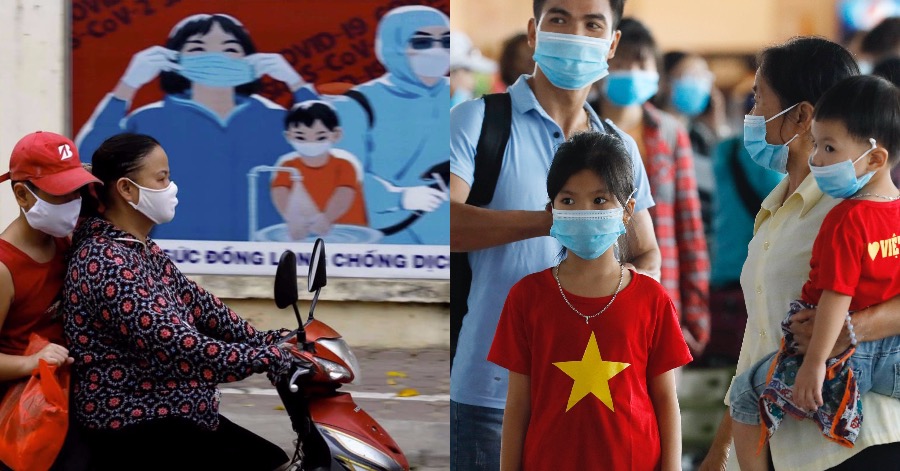KUALA LUMPUR (Bernama) – If there is one major takeaway from the unprecedented health crisis that swept the world some 19 months ago, it would have to be the importance of practising good hand hygiene.
With many nations, including Malaysia, heading towards the COVID-19 endemic phase, it has become more pertinent than ever for people to make handwashing a habit.
Regular washing of hands, particularly after using the toilet or before handling food, can greatly reduce the risk of diarrhoea or contracting contagious diseases such as hand, foot and mouth disease, in the case of children, and of course COVID-19.
UiTM Medical Centre family medicine consultant Dr Ilham Ameera Ismail said hands are among the parts of the body that are most exposed to the surrounding environment as they are used repeatedly every day for a thousand and one purposes such as writing, holding things, opening doors, eating, making payments and even washing the private parts after using the toilet.
“Handwashing may seem trivial but lack of hand hygiene can cause health problems. Handwashing is the easiest way to prevent infections,” she told Bernama, adding that unwashed hands are not only excellent breeding grounds for germs but also serve as the medium for germs to spread from one place to another.
Unwashed hands can also carry contaminants such as faecal matter and chemicals.
“Just imagine, one gram of human faecal matter alone contains one trillion germs,” she said, adding that some individuals, out of habit, like to touch their face with their hands.
“When a person does this, the germs on their contaminated hands can enter the body through their eyes, nose or mouth.”
COVID-19 AND ITS LINK TO HANDWASHING
In the context of the ongoing pandemic, Dr Ilham Ameera, who is also an occupational health doctor, said the virus that causes COVID-19 is easily transmitted via nasal or oral droplets from an infected person.
“If an infected person sneezes or coughs openly, the droplets will fall on exposed surfaces. If the nose or mouth is covered with the hands (whilst sneezing or coughing) and the hands are left unwashed, the virus can spread to any surface the contaminated hands come into contact with. Then, other people who touch the same surface can get infected by the virus too,” she explained.
She said when hands are washed using the proper technique, it can cut the risk of diarrhoea by between 23 and 40 percent.
“It can also reduce the risk of contracting (infectious) respiratory diseases by 16 to 20 percent,” she said, adding that one in three diarrhoea cases and one in five respiratory infections can be prevented by keeping one’s hands clean.
WASH FOR A MINIMUM OF 20 SECONDS
Handwashing has its own correct technique which people have to comply with to ensure their hands are cleansed thoroughly.
Dr Ilham Ameera said hands must be washed with soap and running water for at least 20 seconds or, better still, 40 to 60 seconds.
“The frequency of handwashing will depend on how much you use them and you need to wash your hands each time they are soiled. After washing your hands, dry them with a clean cloth or tissue or use the hand dryer. There’s no point in washing your hands and then drying them with a dirty cloth,” she said.
On the current trend of using a sanitiser for hand cleansing purposes, she said while sanitising liquids can kill germs, they cannot, however, completely remove faecal matter and obvious impurities.
“If using a sanitiser, rub the liquid on your hands for 20 to 30 seconds. If you use it repeatedly and your hands start to feel sticky, then it is time to wash them with soap and water,” she added.
AWARENESS CAMPAIGN
In order for people to incorporate hand hygiene into their daily lives, they should be made aware of the importance of cultivating the handwashing habit starting at an early age.
Based on this approach, Unilever Malaysia – which manufactures various homecare, beauty and personal care, and food and refreshment products – has been carrying out campaigns to promote personal hygiene since a decade ago.
Unilever Malaysia-Singapore marketing manager (Beauty and Personal Care) Lenny Chuah said 10 years ago the company launched the Unilever Sustainable Living Plan (USLP), a set of goals for their global business designed to help make sustainable living commonplace around the world.
Under USLP, the company’s Lifebuoy soap brand set itself the ambitious target of improving the handwashing behaviours of more than one billion people worldwide.
“To achieve the target, Lifebuoy carried out the largest-ever behaviour changing programme involving schoolchildren,” she said, adding that in Malaysia, public awareness on handwashing has increased since the COVID-19 pandemic struck the nation.
“Based on a 2020 evaluation on Knowledge and Hand Hygiene Practice Among Preschool Children in the Klang Valley, it was found that a majority of preschool children acquired knowledge of handwashing from their parents, with 63 percent of them demonstrating the correct technique of washing hands,” she added.
Chuah said since children under the age of 12 are not included in the nation’s COVID-19 vaccination programme, getting them to keep their hands clean all the time is the most effective way to avoid infection.
“Children are naturally curious and are inclined to touch anything they set their eyes on, which can expose them to all kinds of infections, including COVID-19.
“It must be noted that children with (underlying) health issues face a higher risk of developing severe COVID-19,” she said, adding that washing their hands with water alone is not enough to get rid of germs or viruses.
“Parents are advised to use hand cleansers that contain at least 60 to 80 percent alcohol to trigger quick and optimal antimicrobial action.”
EDUCATE VIA VIDEOS
Meanwhile, private-sector employee Noor Hasliza Nusi, 38, said she has been imparting hand hygiene knowledge to her children through social media videos where they also learned the correct handwashing techniques.
“In the beginning, I used to explain the whole procedure to them but they didn’t seem to understand, so I showed them the relevant videos so that they can learn how to wash their hands properly. The videos also instilled into them the importance of handwashing, especially in this new normal era,” she said.
Sarina Aziz, 35, who is a teaching assistant at the preschool at Sekolah Kebangsaan Taman Medan in Petaling Jaya, said the pre-schoolers are constantly reminded to practice the seven handwashing steps, namely wetting their hands and applying enough soap to create a good lather, rubbing their palms together, cleaning each finger and thumb, rubbing the fingernails on the palm, rubbing the back of their hands, washing their hands with sufficient clean water and using a clean cloth to dry their hands.
“It’s important for us to keep reminding them to make sure their hands are clean before they touch their food,” she added.
Sources: BERNAMA









Leave a Comment